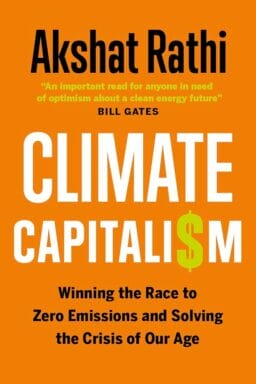Sign up for Climate on the Ballot, our weekly newsletter with ideas for reporting on climate and the 2024 elections.
The outcome of Russia’s presidential election this week was a surprise to no one. Vladimir Putin claimed victory in a contest that the US denounced as “preordained” and accepted congratulations from Chinese president Xi Jinping, reaffirming the two petrostates’ alliance. In the US, Donald Trump escalated his anti-climate, anti-democratic rhetoric, ranting about electric vehicles and, in the same breath, warning of a “bloodbath” should he lose the 2024 election. At this precarious moment, it’s quite clear that rising authoritarianism and climate inaction go hand in hand.
China, the US, and Russia account for about 40% of the annual greenhouse gas emissions fueling global heating. In China and Russia, entrenched authoritarianism makes it nearly impossible for the people to pressure their governments to change. In the US, the cards have not yet been dealt — but the stakes for democracy and for climate are clear: Authoritarianism in global super powers threatens people’s collective ability to prevent the worst impacts of climate change.
Two years ago, Covering Climate Now convened a special project focused on how the erosion of democratic systems globally impacts the world’s ability to act on climate. “[A]utocrats are often directly the result of fossil fuel,” Bill McKibben wrote in the Guardian to mark the project’s launch. “The crucial thing about oil and gas is that it is concentrated in a few spots around the world, and hence the people who live on top of or otherwise control those spots end up with huge amounts of unwarranted and unaccountable power.”
Stopping climate change requires collective action, US representative Jamie Raskin told CCNow partners for the “Climate & Democracy” project. “The democratic governments and democratic parties and movements of the world have got to confront this reality. Nobody else is going to do it,” said Raskin, who led the second impeachment trial of Trump after the Capitol insurrection.
The connection between eroding democracy and lagging climate action has only grown more obvious — and the need for clear-eyed coverage has only become more pressing. Putin’s ongoing invasion of Ukraine continues to rock global energy markets and threaten democratic impulse, while China has begun backtracking on its pledge to phase out coal. In the US, Trump has continued to ramp up his pro-fossil fuel rhetoric on the campaign trail, saying he plans to “drill, baby, drill” if elected and warning that electric vehicles represent an “assassination” of American jobs.
Audiences are hungry for climate news, and journalists have a responsibility to give them the context linking climate to democracy. In this key election year, voters need to know who and what, exactly, are on their ballots.
From Us
US elections. CCNow has advice and story ideas for integrating climate into election coverage on topics including electric vehicles, solar energy, housing, jobs, and more at the Climate on the Ballot landing page. Sign up to receive our weekly elections newsletter.
Noteworthy Stories
1.45 degrees Celsius. A new report by the World Meteorological Organization (WMO) finds that global average temperatures were 1.45 degrees Celsius higher than pre-industrial levels in 2023. “What we witnessed in 2023, especially with the unprecedented ocean warmth, glacier retreat and Antarctic sea ice loss, is cause for particular concern,” said the WMO’s Secretary-General Celeste Saulo. By Richard Connor at Deutsche Welle…
EV push. The Biden administration has launched new, more stringent auto carbon emissions standards aimed at increasing EV sales. The move could lead EVs to represent 56% of new vehicle sales by 2032, the Environmental Protection Agency said. By Camila Domonoske and Michael Copley at NPR…
Big oil defiance. The world’s top oil and gas executives criticized global efforts to rapidly move away from fossil fuels at an industry conference in Texas. “We should abandon the fantasy of phasing out oil and gas and instead invest in them adequately,” said Amin Nasser, CEO of Saudi Aramco, the world’s biggest oil company, to applause. By Marianna Parraga and Arathy Somasekhar at Reuters…
Tree planting. In less than a decade, a reforestation program in nine African countries called TREES has led thousands of farmers to plant tens of millions of trees that have reportedly restored 41,000 hectares of land. Last month, TREES earned recognition from the United Nations Environment Programme as a World Restoration Flagship. By Jonathan Watts at the Guardian…
Local US elections. Heatmap examines eight local and state races that could impact US climate policy. From Anchorage, Alaska’s mayoral race to North Carolina, these contests affect policy regarding clean energy, climate justice, new oil drilling, and more. By Jeva Lange at Heatmap News…
Alaska’s caribou decline. Caribou herds in North America, crucial for Alaska’s subsistence hunters, are declining significantly, likely due to climate change and increased development, including fossil fuel projects. The Trump administration proposed removing protections for 28 million acres of Alaskan wildlife habitat, but the process has been on hold under President Biden. By Yereth Rosen at Alaska Beacon…
Book of the Week
 Reading books can deepen your climate coverage and identify book excerpts and authors to interview.
Reading books can deepen your climate coverage and identify book excerpts and authors to interview.
Climate Capitalism: Winning the Global Race to Zero Emissions
By Akshat Rathi
Published: October 2023
“It’s now cheaper to save the world than destroy it.” That’s the provocative thesis of Bloomberg climate reporter Akshat Rathi’s new book, Climate Capitalism. Extensive interviews with Bill Gates, International Energy Agency head Fatih Birol, and an international cast of investors, entrepreneurs, and scientists animate Rathi’s smoothly delivered argument that contemporary capitalism is compatible with preserving a livable planet. Journalists can benefit from the book’s deep dive into carbon removal technologies and its explanation of how venture capital’s demand for fast profits makes government support for a green transition essential, particularly when compared to staggering $7 trillion global fossil fuel subsidies annually.
Reports and Resources
West Africa heatwave. Climate change made the February heatwave in West Africa about 4 degrees C hotter and 10 times more likely, according to a rapid analysis by World Weather Attribution scientists.
Wildfires. The Society of Environmental Journalists has a new tipsheet, “Wildfire Preparedness Is a Story Worth Telling — Before ‘Fire Season,’” with story ideas and resources.
Carbon offsets. Global Investigative Journalism Network has a new, short-version resource, “Reporter’s Guide to Investigating Carbon Offsets.”
Events
Clean energy. Clean Energy for America will hold a webinar, “Shaping the Future of Clean Energy,” to discuss clean energy technologies, such as AI programs to help consumers. March 28. RSVP.
EV charging. The World Resources Institute and Electrification Coalition will hold a webinar, “Delivering EV Charging Infrastructure to Rural and Underserved Communities through Justice40.” March 28. RSVP.
Food & Ag. Project Drawdown will hold a webinar, “Food Matters: Why climate change may hinge on what we eat and how we grow it.” March 28. RSVP.
Energy transition. The Florence School of Regulation will hold a webinar, “Electric Transmission and the Energy Transition: Perspectives from Africa, Europe, and North America.” April 10. RSVP.
Industry News
Local US TV. A new report from Nielsen and Climate Central examines how local television stations covered four recent extreme weather events. Key findings include:
- Coverage on local TV, particularly by meteorologists, plays a critical role in raising climate awareness.
- When TV coverage of extreme weather events includes climate change context, which happened just 5% of the time, they have “high reach and impact.”
- Local TV news audiences grow dramatically during extreme weather events.
Learning across borders. Media in wealthy countries, which “still struggles to make explicit connections between two topics, such as climate change and health,” could learn from journalists in middle-income countries, according to a new study published in Environmental Research Letters. News coverage in more climate-vulnerable countries is described as “highly sophisticated” as it spoke to the “social, economic, scientific, and political aspects of climate change,” the researchers wrote.
Jobs, Etc.
Jobs. Colorado Public Radio is recruiting a climate and environment reporter (Denver, Colo.). The New York Times is hiring an energy correspondent. Science News is looking for an executive editor and an associate news editor (Washington, DC). The Washington Post is hiring a climate and environment photo assignment editor.
Fellowship. The Narwhal is offering a photography fellowship for “First Nations, Inuit and Métis photographers based in so-called Ontario [Canada].”
